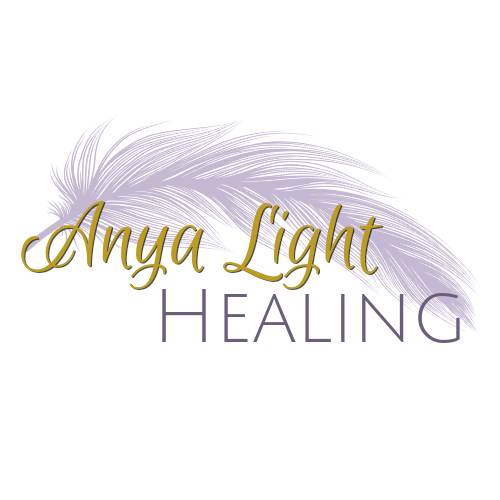
So, you’ve just experienced your first Reiki healing session. I’m so happy for you! It’s wonderful that you’ve chosen to prioritize your wellbeing.
Maybe you are wondering…”What comes next?” In truth, your first session marks the beginning of a deep healing journey that may take days, weeks, months, or even years to fully integrate.
In this article, we explore what to expect after a Reiki treatment and the 7 most important self-care tips. By following these pointers, you’ll receive more benefit and accelerate the healing process.*
1. Drink lots of water
If you heed only one of these tips, I hope it’s this one. It’s the most important.
Simply put, a Reiki session triggers a detoxification process. Water is essential for the detox process to happen safely and efficiently. For the next few days, pay attention to how much water you’re drinking and aim to double the amount you’d normally drink.
If you regularly drink alcohol or caffeinated drinks, now would be a great time to begin to wean yourself off them, as they negatively impact the body. Fortunately, there are many options available if you’re looking for substitutions. You can buy cold-pressed veggie juice or make your own raw juice at home. Sparkling (sugar-free) water is a great replacement for soda. Herbal teas are delicious and nourishing. And, if you love the taste of coffee (like me), you will love Teeccino, which is a delicious herbal drink that closely mimics the taste of your regular brew.
pP
pP
2. Rest
After your Reiki session, it’s important to slow down.
If possible, schedule your Reiki appointment at a time where you’ll have the rest of the day off to relax or sleep. It’s important to not push yourself too hard after Reiki, because your body will probably want to rest. (This is true in 99% of the cases I have seen… I’ve also seen, though, once in a great while, a client who leaves a session totally fired up. They are bursting with fire and energy and may only need two hours of sleep that night. As in all things, this advice is simply a guideline, not a strict rule.)
In addition, I highly recommend disconnecting from technology for the rest of the day, as this will help your nervous system to decompress and relax. Yes, this means switching off your phone! (Don’t worry—everyone is busy with their own lives. They’ll be just fine if you’re unreachable for a little while.)
The first few days after a Reiki session are crucial, as your immune system is being strengthened and your body is finding balance. So, be kind to yourself. Be slow. Be gentle. Get lots of rest.
3. Let your emotions flow
A Reiki session can often trigger deep emotional healing. This experience may feel pleasant. Sometimes, it may not feel so pleasant. My clients have reported a range of emotions. Some have said they felt unusually happy, giddy, spacey, anxious, fearful, angry, furious, sad, or depressed after a session. No matter whether the emotions are seemingly “positive” or “negative”, it’s important that you simply allow them to be exactly as they are, without judgment.
When you freely allow yourself to feel (without repressing the emotions and without judging any emotions as good or bad), then you allow healing at a very deep level. Most of us have been taught by society to stifle our emotions, which causes massive damage in the long-run. Men have been especially wounded in this regard, as, in many cultures, they have been taught not to cry.
After your Reiki session, if you feel like you want to cry… then that is the very best thing that you can do! Please cry! If you feel like beating up a pillow with rage, then do so. Let it all out! If you feel like laughing—then please do! (Interestingly, I once worked with a woman who laughed hysterically during our whole time together! When I asked her if she was okay, she said, “Wow, I haven’t laughed like this in years! I so needed this!”)
The important thing to keep in mind is that if you have any intense mood swings after the session, this is your system’s natural way of finding balance.
If the mood swings seem dark or scary, please do not get angry or frustrated with yourself for having these feelings. In fact, the best thing you can do at this time is to give yourself a hug and say “I love you” to all the parts of you—including the shadowy, scary parts. Those parts are part of you, too. Just as a mother loves her child when he is being “naughty,” so too can we learn to love ourselves all the time, unconditionally.
4. Be patient and observant
Sometimes the results from Reiki are not immediately apparent. It may take a few weeks or even a few months before you can really perceive all that has shifted.
It’s important not to get lost in impatience, doubt, or self-criticism. Healing happens on its own schedule. The only steps we can take are to follow these aftercare tips and to be patient.
Remember to be as kind to yourself as possible. Don’t worry if the desired changes don’t immediately show up in your reality … they will, sooner or later.
5. Do your research and ask questions
After a session, you may suddenly find that you have a million questions about how Reiki works.
There’s nothing wrong with satisfying the mind’s natural desire for learning! There are plenty of amazing Reiki books, blogs, and videos out there. I especially love the teachings of Diane Stein, Frans Stiene, and Shalandra Abbey. You can also read all the Reiki posts here on this blog.
If you have any concerns or questions after your treatment, find out if your healer offers follow-up phone calls, texts, or supportive emails. Sometimes these services are included in the cost; sometimes they may be a bit extra.
6. Embrace detoxification symptoms
When you receive Reiki healing, your body shifts into a higher frequency. When this happens, a detoxification process is often triggered; this is also known as the “healing crisis.”
Basically, this means your body is now shedding old toxins that do not resonate with the new, higher frequency.
If a detox process happens to you, please, my friend, have no fear! This is actually a very positive sign to your overall healing journey.
When you are detoxing, you may experience a runny nose, sneezing, soreness, headaches, joint or muscular pain, fatigue, acne, rashes, extra mucus, or even fever and diarrhea. This is simply your body cleansing itself of old patterns and toxins, which are then coming to the surface to be released.
Be patient as the detox occurs. Get plenty of rest. Drink lots of water and fresh, raw vegetable juice. (If you don’t have your own juicer, you can buy cold-pressed juices at your local grocery store.) Drinking lots of healthy fluids will help flush the toxins from your body and speed up the cleansing process.
During this crucial detox time, it’s a good idea to eat organic, healing foods such as: leafy greens, vegetables, fruits, whole grains, coconut oil, and high-quality proteins such as pine nuts, walnuts, mushrooms, tempeh, and avocados. You may also want to support your immune system with high-quality vitamin C.
Symptoms can range from mild to severe and typically last anywhere from 1 to 21 days. If your symptoms persist for more than a few days (and are severe), make an appointment with your nearest holistic health care provider. They can recommend further strategies to help expedite the detox process. In addition, they can double-check that you are indeed experiencing detox and not something else.
It’s important to note that if you try to numb your symptoms (for example, with alcohol or by using pain killers like Tylenol or over-the-counter cold medicine), then you will actually stall, negate, or totally reverse the healing process.
P
It may be challenging to deal with the symptoms, yes, but your body knows what it is doing. Temporary discomfort is often a necessary part of the healing journey. Stick with it! Soon, you will feel better than you ever have before!
If you are suffering from a chronic illness, you may want to invest in weekly Reiki sessions. When I began my healing journey about 7 years ago, I received a healing session at least once a week for a few months. This was necessary to jumpstart my process of detoxification, which included a runny nose, achy joints, mood swings, moments of bliss and euphoria, intense crying, strange dreams, rashes, acne, fatigue, and nausea. It was difficult, but I persisted. After a few months, I made the commitment to train as a Reiki practitioner, so I could give myself healing treatments every day.
7. Embrace the changes
My clients repeatedly report that they feel “different” after a Reiki session.
When you receive a healing, your intuition is heightened and your normal stress-response is calmed.
After your first Reiki session, you may have needs and wants that differ from your normal routine. For example, you might realize that you need 12 hours of sleep for a few weeks, or you might find that you suddenly are craving green beans with an intense passion! Many of my clients report an urge to spend more time in peaceful, quiet spaces or out in nature. Or, they suddenly have the drive to learn yoga or to exercise more.
Another example of a sudden shift is having a distaste for things you normally enjoy. One of the most common effects after a session is being unable to enjoy alcohol, sugary sweets, meats, or processed foods.
The important thing is to listen to yourself and give yourself permission to find out what feels good for you.
Enjoy the journey, my friend!
P
*Please note: I am not a medical doctor; I am not a licensed medical practitioner or psychologist. This article does not constitute professional medical or psychological advice. I am simply sharing my personal opinion, based upon my years of serving as a minister and Reiki practitioner.
